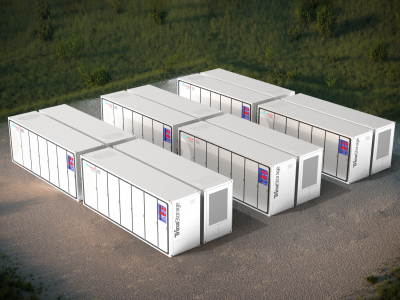What’s Ahead For Energy Storage World Forum Rome 2015
While much attention in our industry has traditionally been focused on grid-scale energy storage, we have for some time been intrigued by the potential for growth in the residential sector.
Residential energy storage is much less dependent on regulation and in some ways is a much easier sell, since you are selling to customers who do not need to seek budget approval for a purchase. Plus the economics are starting to look good in many places.
That’s why we’re glad to see the Energy Storage World Forum dedicating a whole day to the residential market at its upcoming event in Rome, Italy, next month. Here’s a taste of what might be covered.
The new utility strategy for residential energy storage
By Jason Deign
Utility representatives are expected to signal growing acceptance of the need to address residential energy storage market concerns next month.
The 2nd Residential Energy Storage Forum on Monday April 27 in Rome, Italy, will see big-hitting utilities such as E.ON of Germany and EVN of Austria discussing ways to take advantage of growing consumer interest in home-based battery storage.
The mood is expected to be very different from a year ago, when organisations such as the UK National Grid were still mulling over the impact that residential energy storage might have on transmission system operations.
Over the last 12 months, a growing appetite for residential energy storage has begun to affect a number of markets worldwide, forcing utilities to decide whether they should fight or support the trend. In some markets, such as Australia or Spain, utilities are able to count on anti-renewable sentiment in incumbent administrations to stave off the need for immediate action.
Putting customers off
In Spain, for example, planned legislation to ‘tax the sun’ through the application of backup tolls has put consumers off installing solar and battery equipment for almost two years even though a law has yet to be passed. Elsewhere, however, a more favourable environment for distributed solar has seen utilities increasingly looking for ways of cashing in on residential energy storage themselves.
The flag bearer for this new trend is E.ON, whose vice president of technology and innovation strategy, Dr Michael Fipper, will be speaking at the Residential Energy Storage Forum, part of the Energy Storage World Forum.
E.ON last year nailed its colours to the renewable energy mast with a decision to hive off its traditional generation assets. When it comes to residential energy storage, the company is adopting a similarly bold strategy. It is entering the fray as a vendor.
Andreas Piepenbrink of E3/DC, a German residential energy storage system developer, believes the move is a response to declining consumer market revenues in Germany.
More than selling energy
“For a home system you might get €20,000, which is more over 20 years than the operating profit from selling energy,” he says.
E.ON is also selling residential solar PV systems in the Netherlands, in association with Sungevity, making battery storage sales a distinct possibility there, too. Meanwhile German municipal utilities such as Trianel look set to follow a similar path. Last month Trianel unveiled a partnership with Conergy to offer solar systems to around six million households.
And in April the utility’s managing director, Sven Becker, will be talking about ‘Evaluating the residential energy storage business case for Stadtwerks and municipal utilities’ at the Residential Energy Storage Forum.
Giving customers the means to break away from the grid may seem a dumb idea for utilities.
But for the more enlightened power companies this seems more like an attempt to forge new commercial relationships with customers they may lose altogether otherwise.
Compensating for intermittent power
For most other utilities, the main concern so far is not whether to supply customers with battery storage but how to implement energy stores that can compensate for the intermittent power coming off residential solar equipment.
In Hawaii, for example, utilities are studying the deployment of storage to cater for a 67% renewable energy supply by 2030, of which 18% will come from customer-sited, grid-connected systems. Lorrain Akiba, commissioner with the State of Hawaii Public Utilities Commission and another of those taking part in the Residential Energy Storage Forum, has urged the utilities “promptly to move forward” with the plans.
Elsewhere, utilities such as Falbygdens Energi (whose former CEO Lars Ohlsson is yet another speaker at the Forum) of Sweden have also looked to energy storage for use with small-scale wind power.
It is also notable that in the US, where a year ago analysts were warning it was too soon to bet on the residential market, there are now moves by utilities to acquire solar developers to complement energy storage operations.
So far this activity appears to targeting commercial rather than residential-scale deployments. But it seems only a matter of time before utilities come knocking on your door to sell you solar power and battery storage… before anyone else does.
- Book now to make sure you don’t miss the Residential Energy Storage Forum and other critical agenda items at the Energy Storage World Forum in Rome, Italy, from April 27 to 30.
If you want to know more about this and other topics directly from end users of energy storage technologies join us at one of these annual events: The Energy Storage World Forum (Grid Scale Applications), or The Residential Energy Storage Forum, or one of our Training Courses.




